第13章
By the time she was twenty-seven, these thoughts had become very familiar to her. They trod their way through her mind as she sat opposite her mother of a morning at a table heaped with bundles of old letters and well supplied with pencils, scissors, bottles of gum, india-rubber bands, large envelopes, and other appliances for the manufacture of books. Shortly before Ralph Denham's visit, Katharine had resolved to try the effect of strict rules upon her mother's habits of literary composition. They were to be seated at their tables every morning at ten o'clock, with a clean-swept morning of empty, secluded hours before them. They were to keep their eyes fast upon the paper, and nothing was to tempt them to speech, save at the stroke of the hour when ten minutes for relaxation were to be allowed them. If these rules were observed for a year, she made out on a sheet of paper that the completion of the book was certain, and she laid her scheme before her mother with a feeling that much of the task was already accomplished. Mrs. Hilbery examined the sheet of paper very carefully.
Then she clapped her hands and exclaimed enthusiastically:
"Well done, Katharine! What a wonderful head for business you've got!
Now I shall keep this before me, and every day I shall make a little mark in my pocketbook, and on the last day of all--let me think, what shall we do to celebrate the last day of all? If it weren't the winter we could take a jaunt to Italy. They say Switzerland's very lovely in the snow, except for the cold. But, as you say, the great thing is to finish the book. Now let me see--"When they inspected her manuscripts, which Katharine had put in order, they found a state of things well calculated to dash their spirits, if they had not just resolved on reform. They found, to begin with, a great variety of very imposing paragraphs with which the biography was to open; many of these, it is true, were unfinished, and resembled triumphal arches standing upon one leg, but, as Mrs. Hilbery observed, they could be patched up in ten minutes, if she gave her mind to it.
Next, there was an account of the ancient home of the Alardyces, or rather, of spring in Suffolk, which was very beautifully written, although not essential to the story. However, Katharine had put together a string of names and dates, so that the poet was capably brought into the world, and his ninth year was reached without further mishap. After that, Mrs. Hilbery wished, for sentimental reasons, to introduce the recollections of a very fluent old lady, who had been brought up in the same village, but these Katharine decided must go.
It might be advisable to introduce here a sketch of contemporary poetry contributed by Mr. Hilbery, and thus terse and learned and altogether out of keeping with the rest, but Mrs. Hilbery was of opinion that it was too bare, and made one feel altogether like a good little girl in a lecture-room, which was not at all in keeping with her father. It was put on one side. Now came the period of his early manhood, when various affairs of the heart must either be concealed or revealed; here again Mrs. Hilbery was of two minds, and a thick packet of manuscript was shelved for further consideration.
Several years were now altogether omitted, because Mrs. Hilbery had found something distasteful to her in that period, and had preferred to dwell upon her own recollections as a child. After this, it seemed to Katharine that the book became a wild dance of will-o'-the-wisps, without form or continuity, without coherence even, or any attempt to make a narrative. Here were twenty pages upon her grandfather's taste in hats, an essay upon contemporary china, a long account of a summer day's expedition into the country, when they had missed their train, together with fragmentary visions of all sorts of famous men and women, which seemed to be partly imaginary and partly authentic. There were, moreover, thousands of letters, and a mass of faithful recollections contributed by old friends, which had grown yellow now in their envelopes, but must be placed somewhere, or their feelings would be hurt. So many volumes had been written about the poet since his death that she had also to dispose of a great number of misstatements, which involved minute researches and much correspondence. Sometimes Katharine brooded, half crushed, among her papers; sometimes she felt that it was necessary for her very existence that she should free herself from the past; at others, that the past had completely displaced the present, which, when one resumed life after a morning among the dead, proved to be of an utterly thin and inferior composition.
The worst of it was that she had no aptitude for literature. She did not like phrases. She had even some natural antipathy to that process of self-examination, that perpetual effort to understand one's own feeling, and express it beautifully, fitly, or energetically in language, which constituted so great a part of her mother's existence.